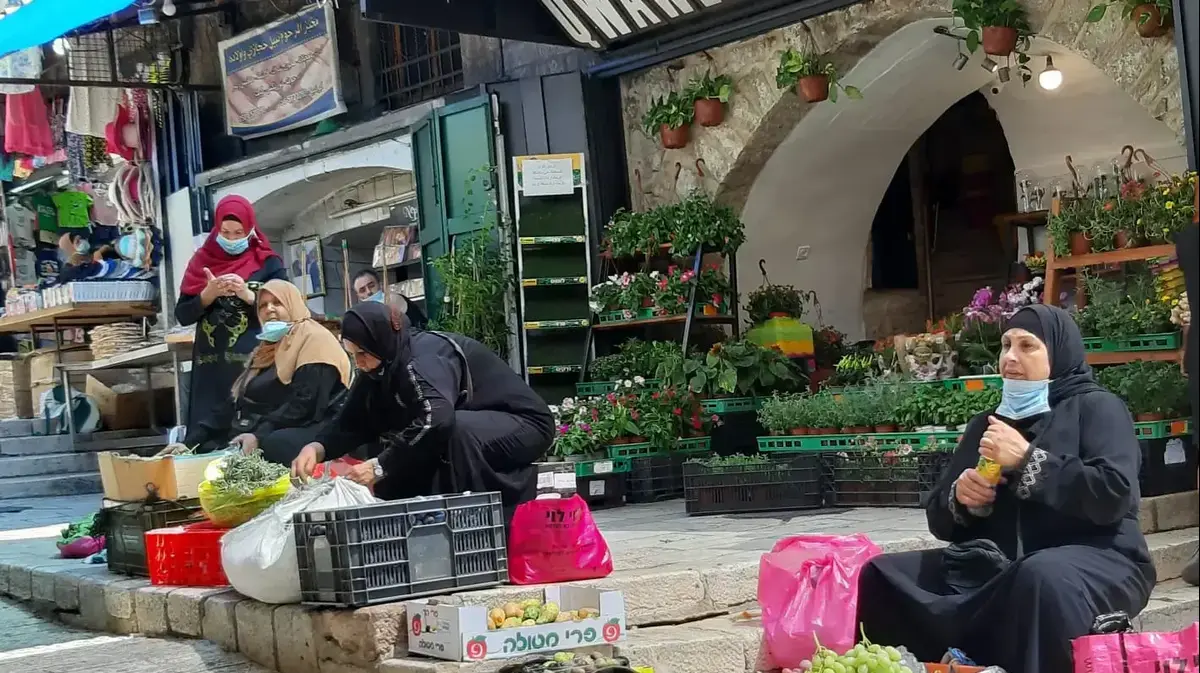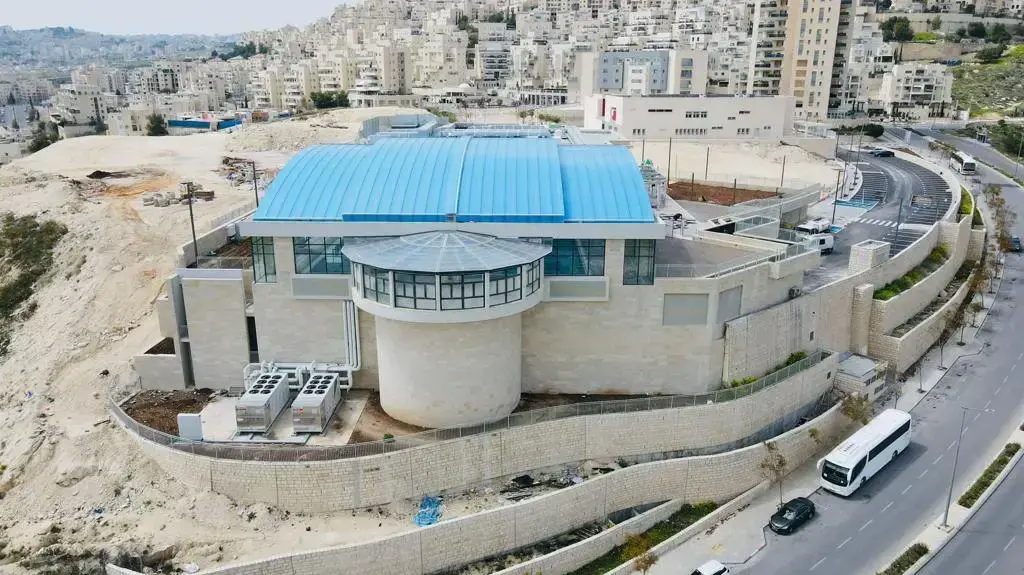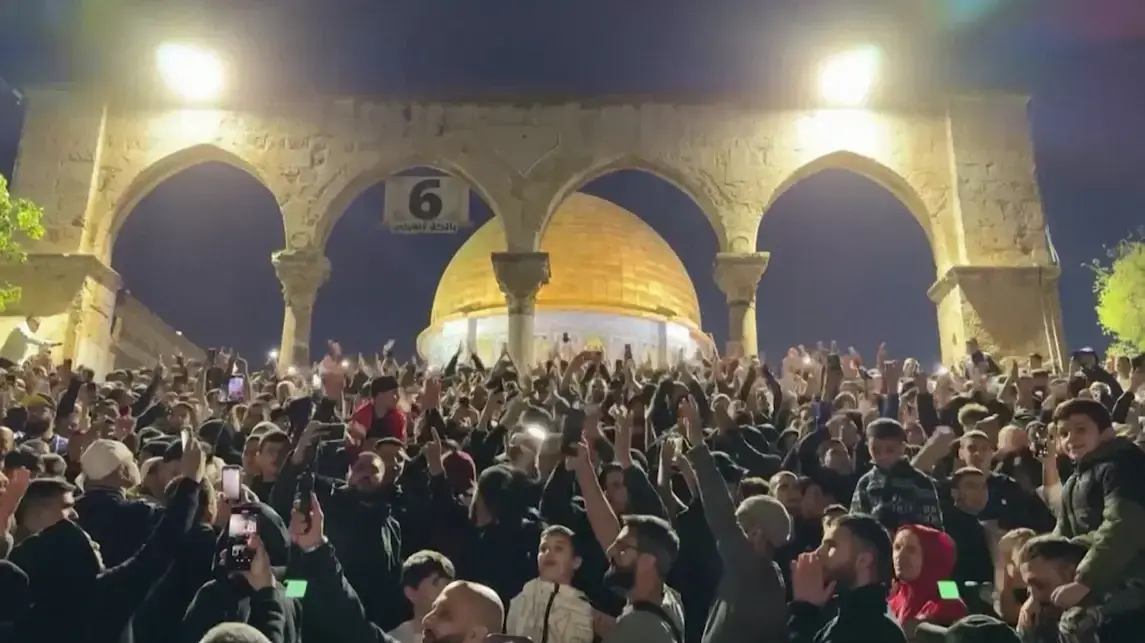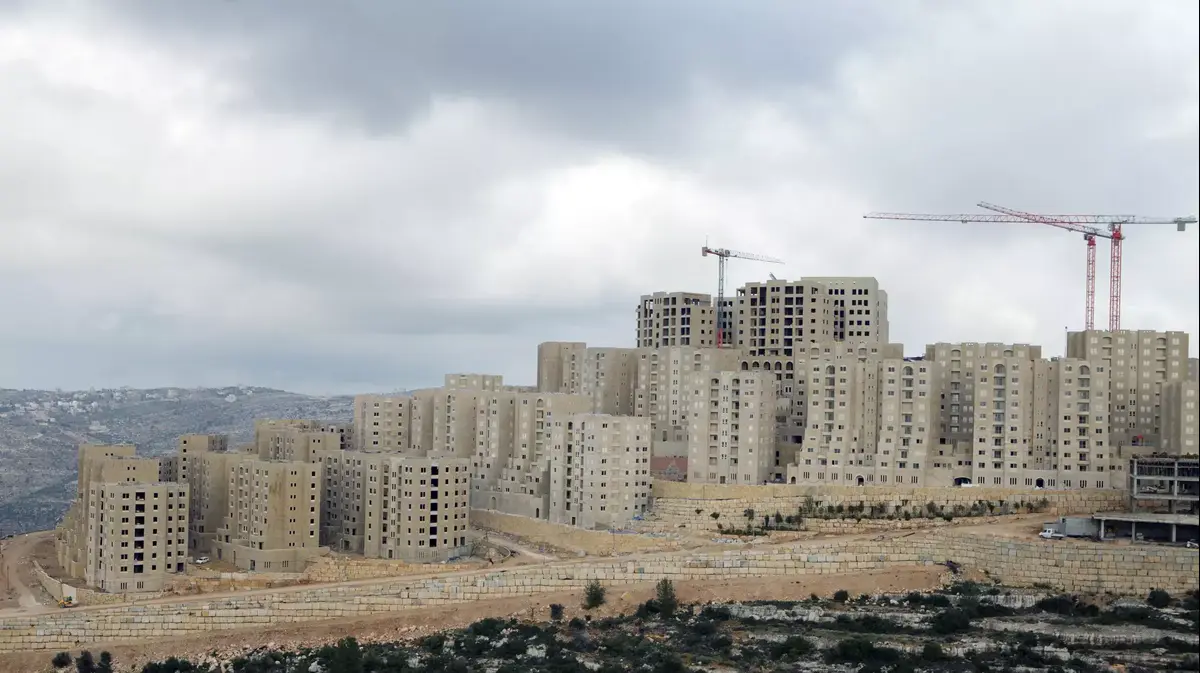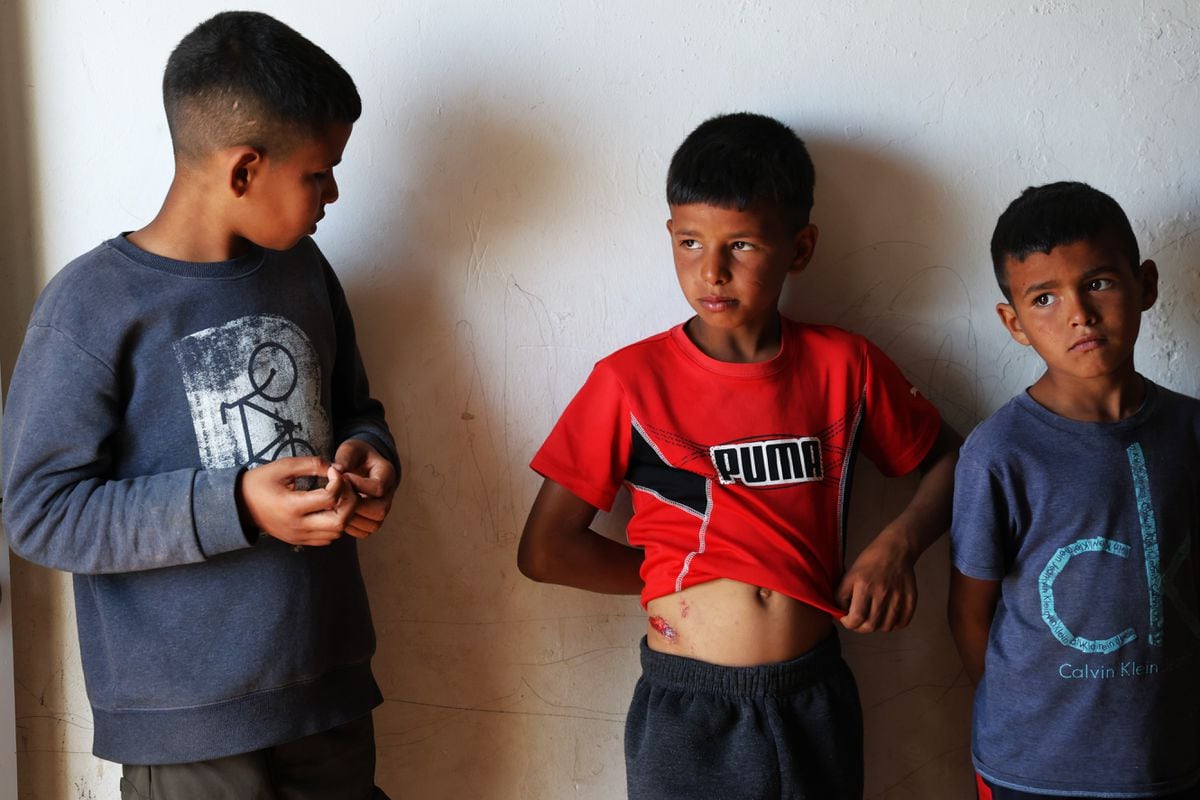- news
- Corona
The corona is spreading in East Jerusalem, but residents are more troubled by the demolition of houses
In contrast to the first wave, some of the city's eastern neighborhoods have recently become hotspots, and locals are signaling a loosening in the implementation of the guidelines. More than the plague, however, the demolition orders for illegal homes employ them alongside the harsh economic reality. "On the one hand we take care of our lives, and on the other hand we are thrown into the street"
Tags- Corona virus
- Jerusalem
- East Jerusalem
- Demolition of houses
Maya Horodnitsano
Saturday, August 22, 2020, 12:30 p.m.- Share on Facebook
- Share on WhatsApp
- Share on general
- Share on general
- Share on Twitter
- Share on Email
On a hot afternoon one day this week, a row of representatives from the neighborhoods of East Jerusalem gathered at the entrance to Jabal Mukaber, where the "Check and Drive" complex, which closed at the end of the first wave of the Corona, reopened. Although the number of patients has continued to rise for a long time, and about half of the patients in the city are in the eastern ward, only two complexes were opened this week - one in Sheikh Jarrah and the other in Jabal Mukaber.
The municipality explained that Mayor Moshe Leon had been pushing for their opening for a long time, in the hope that this would increase the number of tests and stop the spread of the disease. "There are no more excuses not to go for tests," Leon said, asking the neighborhood representatives who came to help him along the way. "We have entered a situation where the number of carriers is rising. To stop this, we are increasingly encouraging residents to come and be tested."
However, conversations with some of them revealed that although they welcome the opening of the compound, for them the corona is not necessarily the problem that is at the forefront of the issues that bother them.
More on Walla! NEWS
- Double from Bnei Brak: Jerusalem leads the morbidity map in Corona
- Corona - Weekly update: 10,244 patients were diagnosed last week - an increase of about 10%
- For the third time: the Corona Cabinet convened - but did not point to Gamzo's "traffic light plan"
- Hair transplant for men and women: Istanbul is open and offers a natural and permanent solution
"We are a promiscuous area, we do not know what cleanliness is. There are drug stations in the wadi that are known and no one cares," said Taysir Abu Ramuz, a representative of the ancient Wadi neighborhood, who hoped to catch the mayor or one of his representatives for a conversation.
Saleh from Jabal Mukaber and the chairman of the community director in Tzur Baher, Redman Debash, preferred to deal with the demolition of the houses. "Only four houses were demolished today," Saleh said on the opening day of the compound. "I think at least during this period they should have stopped. "How on the one hand do you take care of the lives of people who will not be infected in the corona and on the other hand throw them into the street?" Honey added. In
Silwan, Daoud Siam from the neighborhood describes, "no one talks about the corona, everyone talks about house demolitions in the neighborhood." "Someone in the neighborhood, for example, received a demolition order, and now lives on the ruins with eight children because he can't find where to rent a house."
After the break during the closure period, the Jerusalem Municipality returned to some demolition orders and demolished buildings in neighborhoods in the east of the city that do not have regulated plans, and much of the construction in them is done illegally. According to data from Ir Amim from January to this week, 89 housing units in East Jerusalem were demolished, of which 58 were self-demolished, leaving many residents in the densely populated neighborhoods homeless. This is compared to 104 housing units that were demolished throughout 2019. At
the Adallah Center this week, Attorney General Avichai Mandelblit requested a halt to the demolition of houses due to the aggravated situation of the spread of the corona virus in the area. "In the current situation, the demolition of the houses not only violates the residents' right to a roof but also their ability to defend against the epidemic."
Along with this issue, the activists and residents of the neighborhoods also recognize an increase in morbidity in the area, similar to some Arab localities in the country, where there are currently about 1,850 active patients. The consequences can be seen in commercial areas, among other places.
"They said the area was full of corona, scared and created pressure. So fewer people come to such centers," described Snokrot Zakaria, a grocery store owner on the main street of Beit Hanina, where about 200 corona carriers were diagnosed. "During Ramadan there was a big drop in shoppers because they had to close early and people went bankrupt and closed shops. But even now there is a drop, people are buying only what they need."
More on Walla! NEWS
Gamzo: Morbidity in Jerusalem is high - Elsewhere in the world, such a city was closed
To the full article
Rahaf Masluhi, a 22-year-old from Beit Hanina who graduated from English literature and education at Bir Zeit University, believes that one should learn to live with the corona and that residents should listen to the state's guidelines. "If people are wearing masks and following the distance guidelines then everything will be fine," she said. "We need to move on with Corona and without Corona, but we must maintain our safety."
He added that despite the morbidity, there are those who still hold mass events. "I am invited, but I do not go, because my safety is important. I think now it is up to the people to listen to the instructions that the state gives. The problem - people do not listen, they just want to do what they want," she protested.
Also in the market in the Old City, which these days as a full repair of tourists from the country and dance during this period, the traffic is sparse these days and most of the visitors are locals. Iyad Hadami, who owns a falafel stand in the Old City, said that "there are not many buyers. Everyone is afraid of the corona. Corona is a problem, but those who are careful have no problem. And from 13:00 there are no people."
Alongside this, many explain that the economic problem is more serious than the corona. "There is no tourism. Almost no one comes from Jerusalem either. All the shop owners here have no way to live. Some are afraid of the corona, but many do not come because the economic situation is difficult - empty cafes, empty restaurants, buy only what you need every day. Air, "said a resident of Ras al-Amud, pointing to nearby stalls. "They say there are patients but I no longer believe in Corona, do not know."
The worsening situation could also be learned from this week's visit by Health Ministry Director General Hezi Levy to the three hospitals in the east of the city, where the morbidity is also evident. "These are not the same numbers, in the first wave we were with three patients and now we are with 22 patients. Levy alerted Maher Dib, director of St. Joseph's Hospital, said "there are some serious patients, and we are constantly receiving inquiries," and told of collaborations between the hospitals. The
visit of the director general of the health ministry came after last week, a projector warned The Corona, Professor Roni Gamzo, is collapsing the hospitals in the west of the city, to which most patients are referred. Levy said he has established plans for the assistance required for the hospitals.
To the Walla question! NEWS On the subject, the Ministry of Health stated that "the hospitals in East Jerusalem were given a sum of four million shekels for the establishment of corona wards. In addition, a sum of four million shekels was approved for the hospitals' preparation for a purple mark and service during the corona period. In addition, the hospitals received ultrasound devices Mobile, protective equipment and will be used for corona expenses. "
However, the director of al-Mukassed Hospital said it was the fourth visit by health ministry representatives since March, when they had not come at all over the years, and that they had received partial assistance during this period, including devices, but "after the corona I know it will stop. "Before that we said we had no money and we were losing patients and there was no one to help," he said.
"If the country is not so determined then it's not really serious"
Both the residents and officials in the municipality point to the celebrations of the Feast of Sacrifice as well as to the weddings and mass funerals, which have been held recently, as one of the main factors. This, along with the feeling of euphoria after the low morbidity in the first wave.
Hadar Abid, a resident of Issawiya and a school principal, described that "in the first wave they were very scared, and now they have stopped being afraid and feel it is a normal disease, doing nothing." He added that "people go to weddings and even if someone dies they do a big funeral and another three days of condolences, are not afraid of the disease", and also that he himself is very apprehensive and meticulous. However, some point out that incidents have recently decreased, in part due to infection.
Fouad Abu Hamed, director of a clinic in Beit Safafa, believes that one of the main problems is the lack of enforcement by the police in the current wave. "Residents are not so obedient to the Ministry of Health, both because they think the corona is not like her scream, not a very serious illness, and also because they do not know patients, because most patients in the second wave prefer to remain anonymous rather than expose themselves," he said.
Abu Hamed added that "the main thing is the enforcement of the police that they carry out individually in some places, unlike what was in the first wave that prevented gatherings. If you walk around without a mask then enforce, but do not prevent mass gatherings and weddings, events where there really are very high infection rates. It gives residents a sense that if the state is not so determined then it is not really serious. " According to him, in the first wave they also checked that the insulators were staying in their homes, but today they can walk around and no one is checking.
Things are also reinforced by Daoud Siam from Silwan, who told of isolators leaving their homes because they need food and money and there is no one to help them. "We turned to Welfare because there are a lot of people who need to be in isolation and they have nothing to eat and how to help them, they called Welfare and did not receive treatment and then they went out and maybe and infected others. I warned about it a lot," he said. "People who live from hand to mouth, and can not be in isolation without being helped."
Siam believes that the municipality also began to act at a late stage this time on the issue of information. "The municipality and welfare in the first wave were in good contact with us. And we, some activists, were among the most prominent to help. This time we had almost no sympathetic ear," Siam added, "perhaps they despaired."
Kamal Jabari of the Shuafat refugee camp also described a loosening of compliance with the guidelines in the neighborhood beyond the fence, where no enforcement is carried out. "People are less guarding than before, in the neighborhood they take off the mask, and open the shops," he said. "We do weddings as usual, because most of those who get infected are young and it doesn't scare them that it is fatal. And even those who lost money and were in a difficult situation feel that they have gone through it."
According to Jabari, while at first only the young people violated the guidelines, now even the adults do not follow them, having encountered almost no serious patients. "There is a sense of distrust, at first the young people did not keep to the guidelines and now it is also the adults, who do not oppose weddings as before," he described. At the same time, he stressed that "the municipality needs to think about winter now, so there will be a serious problem and needs to be prepared. I am afraid of winter, there should be a plan."
The beginning of the upcoming school year also raises concerns among residents, due to the overcrowding and lack of infrastructure, with more than 50% of students studying in non-formal institutions. "From the beginning, the conditions of the schools in East Jerusalem are very difficult, most of the classrooms are non-standard and crowded, and people are afraid to send their children.
According to the Jerusalem municipality, the demolition of the houses is done according to the court's decisions. "The demolition orders are executed in accordance with the court's decisions and in an equitable manner," the response said. "Since the beginning of the year, a number of demolition orders have been carried out in the east of the city - some by the municipality and in some cases the residents have independently demolished the sections that did not receive a permit, in accordance with the court order."
Regarding the treatment of the corona plague, the municipality said that "since the outbreak of the corona crisis, the mayor of Jerusalem, Moshe Leon, has been leading an unprecedented effort to curb the spread of the virus throughout the city, including in East Jerusalem."
The municipality added that "for the benefit of the cause, the municipality harnessed all medical, emergency, welfare and community in the east of the city for a joint and unprecedented effort in a variety of areas: individual care of patients and their families, evacuation of patients, distribution of food baskets to the underprivileged and elderly, construction of designated testing complexes "In all the neighborhoods, among the steps taken by the municipality are the opening of two drive-in complexes in the east of the city, the establishment of a joint control center with the Home Front Command to the east of the city, the opening of a dedicated hotel for Corona patients from the east of the city."
- Share on Facebook
- Share on WhatsApp
- Share on general
- Share on general
- Share on Twitter
- Share on Email

